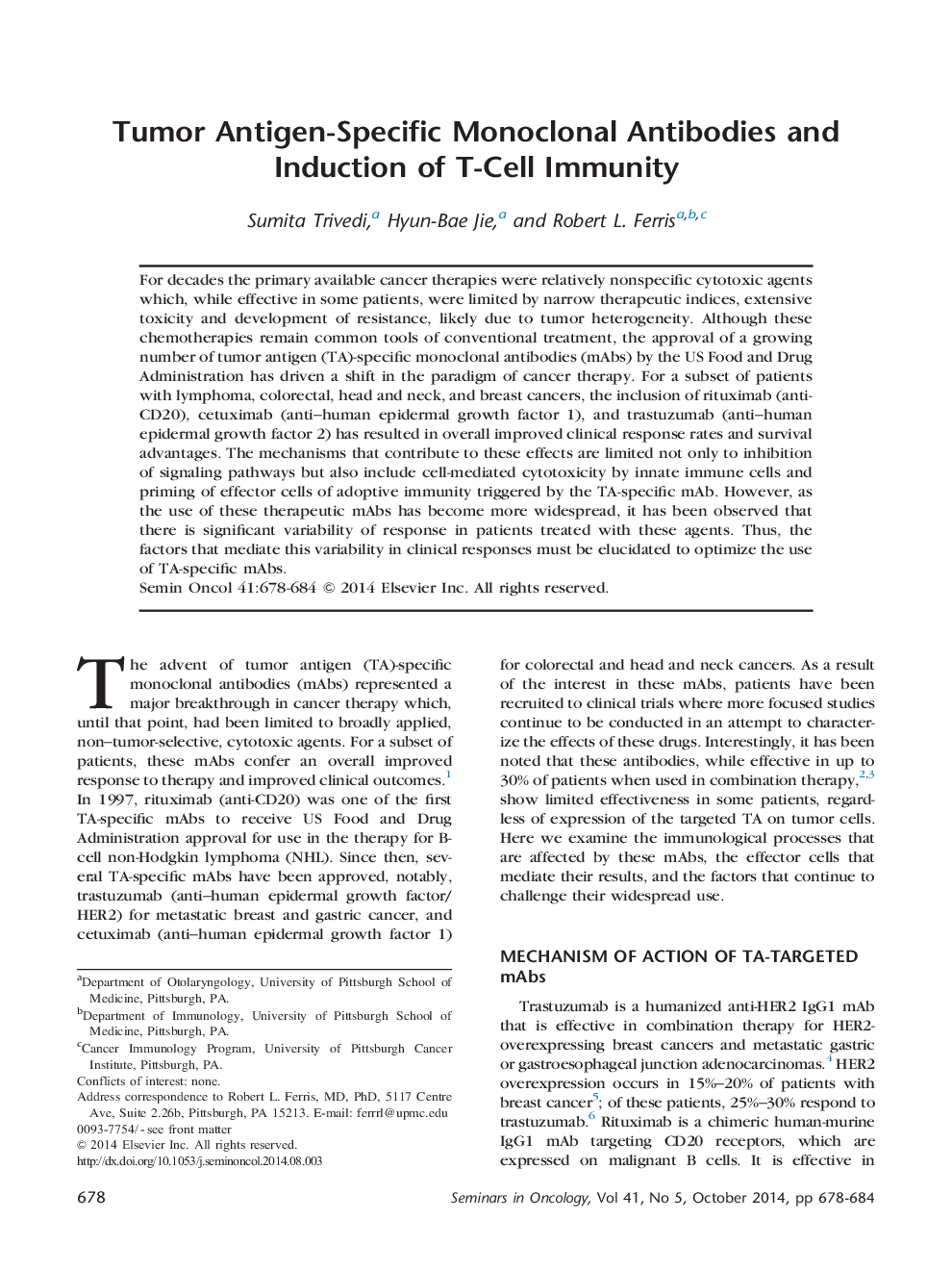| کد مقاله | کد نشریه | سال انتشار | مقاله انگلیسی | نسخه تمام متن |
|---|---|---|---|---|
| 10924389 | 1091220 | 2014 | 7 صفحه PDF | دانلود رایگان |
عنوان انگلیسی مقاله ISI
Tumor Antigen-Specific Monoclonal Antibodies and Induction of T-Cell Immunity
دانلود مقاله + سفارش ترجمه
دانلود مقاله ISI انگلیسی
رایگان برای ایرانیان
موضوعات مرتبط
علوم زیستی و بیوفناوری
بیوشیمی، ژنتیک و زیست شناسی مولکولی
تحقیقات سرطان
پیش نمایش صفحه اول مقاله

چکیده انگلیسی
For decades the primary available cancer therapies were relatively nonspecific cytotoxic agents which, while effective in some patients, were limited by narrow therapeutic indices, extensive toxicity and development of resistance, likely due to tumor heterogeneity. Although these chemotherapies remain common tools of conventional treatment, the approval of a growing number of tumor antigen (TA)-specific monoclonal antibodies (mAbs) by the US Food and Drug Administration has driven a shift in the paradigm of cancer therapy. For a subset of patients with lymphoma, colorectal, head and neck, and breast cancers, the inclusion of rituximab (anti-CD20), cetuximab (anti-human epidermal growth factor 1), and trastuzumab (anti-human epidermal growth factor 2) has resulted in overall improved clinical response rates and survival advantages. The mechanisms that contribute to these effects are limited not only to inhibition of signaling pathways but also include cell-mediated cytotoxicity by innate immune cells and priming of effector cells of adoptive immunity triggered by the TA-specific mAb. However, as the use of these therapeutic mAbs has become more widespread, it has been observed that there is significant variability of response in patients treated with these agents. Thus, the factors that mediate this variability in clinical responses must be elucidated to optimize the use of TA-specific mAbs.
ناشر
Database: Elsevier - ScienceDirect (ساینس دایرکت)
Journal: Seminars in Oncology - Volume 41, Issue 5, October 2014, Pages 678-684
Journal: Seminars in Oncology - Volume 41, Issue 5, October 2014, Pages 678-684
نویسندگان
Sumita Trivedi, Hyun-Bae Jie, Robert L. Ferris,